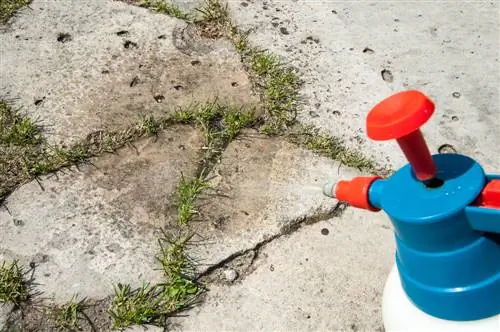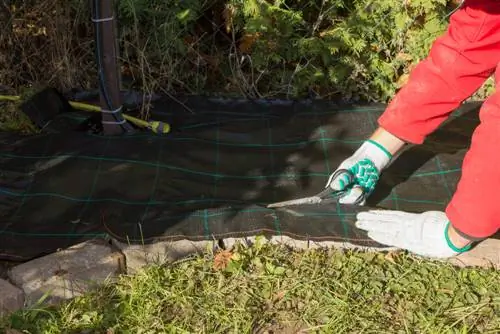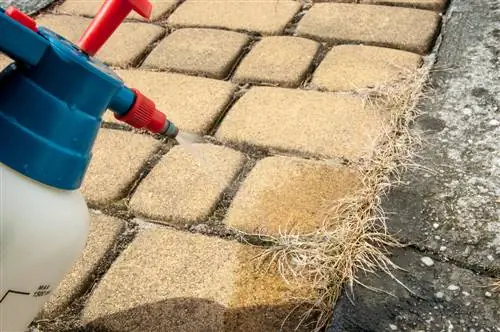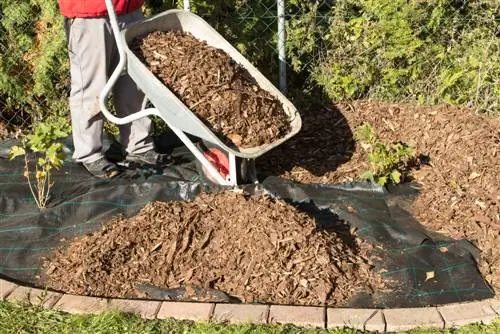- Author admin leonars@hobbygardeners.com.
- Public 2023-12-16 16:46.
- Last modified 2025-01-23 11:21.
There are a variety of home remedies that can be helpful in the fight against annoying weeds. We read again and again that Klorix works extremely well against weeds. You can find out in this article whether this statement is true and how to use the remedy correctly.
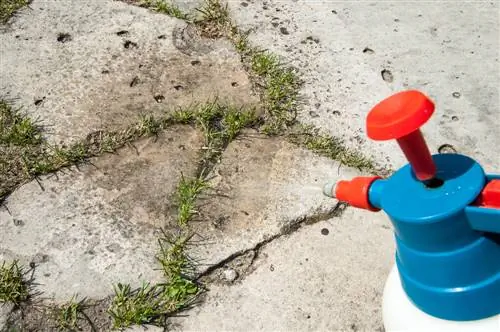
Can you use Klorix against weeds?
Klorix can be used to control weeds, but poses risks to neighboring plants and the environment. Chlorine in Klorix has a corrosive effect and damages soil life. When using, gloves should be worn and Klorix should be diluted with water (20 ml Klorix to 80 ml water).
What is Klorix?
Klorix is a cleaning product that contains about 2.8 percent chlorine (sodium hypochlorite). The product also contains sodium carbonate and cleaning surfactants.
The product is recommended for removing stubborn stains in the household, for disinfection and fighting mold.
Does Klorix work against weeds and how should the product be used?
Chlorine works very well against weeds, but neighboring plants are often severely affected and show signs of poisoning. How much active ingredient the plants can handle varies. Unfortunately, cultivated plants usually prove to be less resistant than the weeds that you fight with Klorix.
To keep the risks as low as possible, you should proceed as follows:
- Dilute Klorix before use. Add a maximum of 20 ml of the liquid to 80 ml of water.
- Because chlorine damages the skin, you should definitely wear gloves.
Klorix is only suitable for destroying individual plants. To remove weeds over a large area, you should use another method.
Are there any risks when using it as a weed killer?
Chlorine is not a harmless substance that can be dangerous for both people and the environment if used incorrectly.
- Liquid chlorine is highly corrosive.
- Gaseous chlorine can damage the respiratory system.
- Due to the corrosive effect, soil life is also unintentionally affected.
Tip
The plant protection regulations state that you are not allowed to use Klorix on sidewalks, paved driveways or patios. This is justified by the fact that the preparations cannot be biodegraded on sealed surfaces. Violations can result in fines of up to 50,000 euros.

